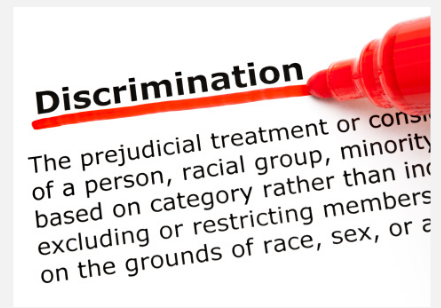From the Justice Department to the Department of Education to the Department of Commerce, contempt for enforcement of civil rights laws is an organizing principle of this administration. In some attempts to minimize the prospective damage, the US Commission on Civil Rights, a bipartisan agency, will launch a two-year investigation into the effects this administration’s policy and budget has on civil right enforcement. Many individuals vulnerable to discrimination, however, will face a significant decrease in the basic protections offered. For at least four years, this administration is likely to do only the bare minimum required by law to enforce civil rights and anti-discrimination.
The Federal Government Must Guarantee Education for Children with Disabilities
In recent years, we have made some major strides in advancing the rights of students with disabilities. The unanimous decision by the Supreme Court ensures a promise for a bright future for children with disabilities. Iustitia Legal Center urges Ms. DeVos and the Department of Education to consider this forceful decision that urges meaningful compliance with IDEA. The Department must continue to invest in strong public education systems across the country, and uphold the rights guaranteed to students with disabilities under IDEA, as educational services are necessary to ensure continued support of individuals with special needs.
President-Elect Trump’s Potential Effect on Public Education and Neurodiversity
Trump’s pick for Education Secretary, Betsy DeVos, threatens access to public education for all, however, students who have mental illness, autism, or intellectual disability, will suffer the most. Ms. DeVos’ platform to expand voucher programs and give families taxpayer dollars to attend private and religious schools will slowly but surely dismantle the current public education system.
Will the Bipartisan Consensus on Criminal Justice Reform Survive?
Prior to the 2016 election, Republicans and Democrats were coming to an unprecedented consensus on the need for criminal justice reform. Both sides of the isle recognized that modern criminal justice policies that had made the United States the world’s leader in incarceration were not working. Instead, the individuals caught up in the system were disproportionately people of color and many had severe mental illness or disabilities. How the new administration will approach the issue of criminal justice reform remains a question. However, if the consensus on major reforms remains bipartisan, legislation may have a veto-proof majority regardless of the new administration’s stance.
Family and Domestic Rights in the Era of Trump
In the Republican platform, adopted during the 2016 election season, there was some emphasis on protection of families. In this post we will touch on history and statements of the incoming president, as well as his appointees and nominees, on issues that may affect the rights and well-being of the family structure and the social supports put in place to protect families.
LET THEM SPEAK: WHY TEACHERS AND SCHOOL EMPLOYEES NEED MENTAL HEALTH TRAINING
Imagine you are a student in university. You are facing the challenges all students experience. The stress from schoolwork. The stress to make friends. The stress of trying to fit in. But on top of it all, you have been battling anxiety and depression. At some point, you break and think “I just cannot do this anymore.” The suicidal thoughts take over your entire being and all you want to do is talk to someone about your emotions and fears, so you reach out to teachers or administrators. Then you receive this message from your university. “It is important that you refrain from discussing these issues with other students and use the appropriate resources. If you involve other students in suicidal or self-destructive thoughts or actions you will face disciplinary action.”
Ratifying the CRPD is Symbolic, but Crucial to Inclusion
It is high time to dispense with the fear that ratification of the CRPD will somehow lead to a disintegration of U.S. sovereignty. Ratification of the CRPD is uncontroversial and can only have positive effects for individuals with disabilities and advocates for disability rights both in the United States and the international community. It should be ratified and enforced in the United States.
Afraid to Leave: A discussion of the mental health consequences experienced by survivors of domestic violence and their families
Domestic violence is experienced across genders, races, ages, and sexual orientations. Mental health and domestic violence are inextricably linked. Survivors of domestic violence often experience an array of mental health issues including posttraumatic stress disorder (PTSD), depression, substance abuse, anxiety, personality disorders, sleeping disorders, eating disorders, and social dysfunction. The effects of domestic violence on the entire family can have dramatic legal and educational consequences, and subsequently break up families, if they are not dealt with vigilantly and compassionately.
Interview: A Much-Needed Pilot Mental Health Court in Memphis, Tennessee
iustitia’s Mental Health Courts Initiative strives to better understand the role of these specialty courts and the effects on the individuals in the system. Because of her experience in a new mental health court in Memphis and her penchant for honest assessment, I asked Public Defender Kelly Pretzer to discuss experience with the system in Memphis, Tennessee, her frustrations with it, and why she thinks this is an important—albeit very rudimentary—step forward for criminal justice.
Diagnosis and Services: Autism Doesn't Only Affect White Children
Parents of autistic children face many challenges, but those of African-American decent encounter even greater obstacles. African-American children are statistically far less likely to receive an autism diagnosis. Further complicating matters are the complex racial divides in the United States today. For example, imagine attempting to teach your autistic black son how to interact with police and having absolutely no guidance.
Beyond the Narrative: Mental Health Crisis and Police-Involved Shootings
Individuals with mental illness, psychologists, and activists yet again are forced to reiterate that mental illness does not lead to violence against others. iustitia has commented on why focusing on mental illness in the wake of mass shootings is dangerous and risks stigmatization. But there is a mental health connection in police involved shootings that has constantly evinced media coverage and consequently, solutions. This narrative serves to conceal a brewing crisis that must be unmasked and that lies at the intersection of police-involved shootings and mental illness.
Forced Sterilization: Why Three Generations of Antiquated Law is Enough
Despite the international prohibition on this practice, the United States is guided by a 1927 case that permits forced sterilization of individuals with intellectual disabilities. The Supreme Court of the United States upheld the involuntary sterilization of the allegedly mentally disabled in Buck v. Bell.
Veterans Treatment Court: A Second Chance for Veterans Battling Post-traumatic Stress Disorder
In response to the increase of OIF/OEF veterans entering the criminal justice system, a handful of courts across the nation began to form veteran-specific court programs. In 2011, the Veterans Treatment Court at the Montgomery County Court of Common Pleas (Veterans Court) in Pennsylvania was established.
Transgender Rights: Why We Should All Be Like Denmark
As of January 2017, Denmark will be the first country in the world to declassify “being transgendered” as a mental illness. This move is monumental for transgendered people in Denmark. However, it also opens the path for other nations to uphold transgendered rights and enables the international community to take a stand. Denmark hopes this move will help to decrease the institutionalized stigmatization of trans people.
Why is the Department of Defense Tacitly Discouraging Veterans’ Recovery?
Despite great efforts by the Veterans’ Administration and veteran-led non-profits to provide mental health care for veterans, the stigma remains in insidious ways. The implicit encouragement of veterans to remain mum about mental illnesses is particularly troubling when one considers that the rate of mental illnesses among veterans is more than double that of average Americans. So, why is the Department of Defense tacitly promoting a culture of silence around mental health counseling and disadvantaging those who seek counseling in promotions and security clearances?
Intellectual Disability and Death Row in Texas: Why Lennie Should Not Be the Standard
In Atkins v. Virginia, the Supreme Court issued a momentous ruling stating that it is a violation of the Eighth Amendment ban on cruel and unusual punishment to execute inmates with intellectual disabilities. This statement seems straightforward. However, the Court failed to establish a specific test or define under what circumstances it considers individuals to be intellectually disabled for purposes of capital punishment. Thus, in practice, states are left to determine what standard to utilize.
“FREE TO A WILLING HOME: 13 yo m with BPD” – How Unwanted Adopted Children with Mental Illness Become Victims of an Underground Internet Child Exchange
The heightened mental health concerns associated with adopted children unfortunately lead to many failed adoptions, often referred to as “disrupted.” Failed adoptions drive a disturbing underground phenomenon—the “private re-homing” of children, arranged online and with little to no government regulation. Adoptive parents, finding themselves overwhelmed and unequipped to deal with behavioral issues stemming from their adopted children’s mental health conditions, take to the internet—forums on Facebook or message boards on Yahoo, for example—to find a new home for the child, much like you would see for a family pet. The practice has become an underground lawless market for unwanted adopted children.
Evolving Standards of Decency Don't Include Solitary Confinement for Autistic Prisoners
Individuals with autism who end up embroiled in the criminal justice system often find themselves not only brutalized by police because of law enforcement’s failure to recognize and understand autism, but also severely punished if they end up in prison. Some are even re-victimized because of mental health illnesses that result from traumatizing experiences associated with their incarceration. For many, particularly children, the penchant to place incarcerated individuals with autism in solitary confinement—either for their own safety or as punishment for perceived misbehavior—raises concerns under the Eighth and Fourteenth Amendments to the Constitution and may amount to a breach of the international prohibition against cruel and unusual punishment.
Mental Health Courts: Part of the Problem or Solution?
Congress empowered the Bureau of Justice Assistance, in coordination with the Substance Abuse and Mental Health Services Administration (SAMHSA), to establish the Mental Health Courts Program. This program seeks to implement collaborative efforts that bring improvements to the treatment of criminal offenders with mental disabilities or illnesses. Mental health courts, a relatively recent phenomenon, involve a partnership between judges, prosecutors, and defense attorneys to deal with nonviolent offenders who have been diagnosed with a mental illness or co-occurring mental health and substance abuse disorder. The goal of these courts is to provide courts with resources to improve social functioning of clients with disabilities by offering treatment as an alternative to the prison system.
Privatization of Prisons and Mental Health
The U.S. Constitution’s Eighth Amendment prohibits the infliction of cruel and unusual punishment. This provision of the Eighth Amendment embodies the “broad and idealistic concepts of dignity, civilized standards, humanity, and decency.” Jackson v. Bishop, 404 F.2d 571, 579 (CA 1968). In Estelle v. Gamble, 429 U.S. 97 (1976), the U.S. Supreme Court ruled that the government has an obligation to provide medical care for incarcerated individuals. The Supreme Court noted that the denial of such care could result in pain, suffering, torture, or death.



















